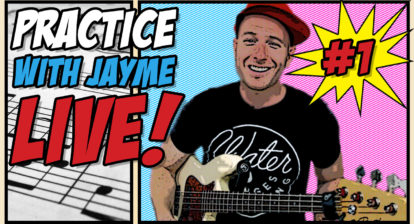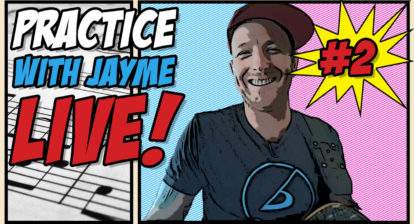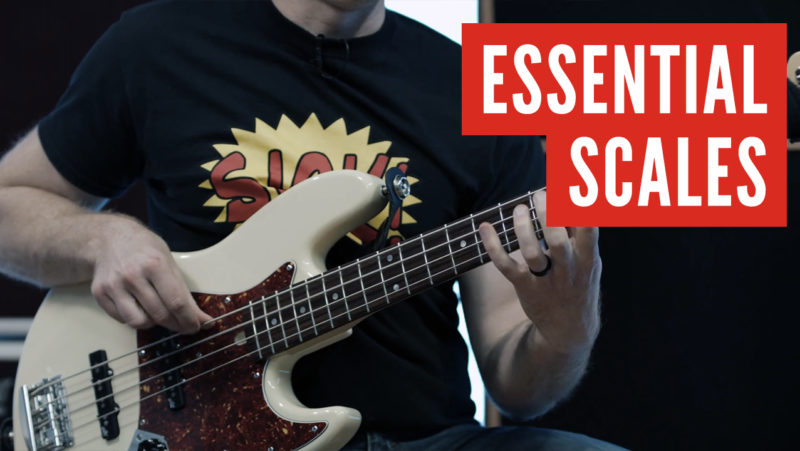Ok… So we’re about a month late on this one, but we’re back in full swing here! I announced on my podcast that we’d be taking a few weeks of hiatus or sabbatical, and perhaps I failed to mention that here. It’s been good to have the time off to think, reflect and plan for the next year (which is something I recommend you do every so often) and I’m ready to hit the ground running!
So again, my apologies for not finishing this post that I started last year. But here we go!
In Part One of this post I left you with this question: What if I don’t have enough time to do all of that stuff? If you’re wondering what “that stuff” was, then just jump back to the previous post and brush up your memory. But this thing called “Time” is a good thing to bring up; it truly is important and it’s something that most of us don’t have enough of. Interestingly, it’s also something that we all have the same exact amount of.
Think about some of the most “successful” people in the world, and let’s broaden our visions beyond the scope of bass players and musicians. Yes, Miles Davis was a genius, so was Louis Armstrong, and Jaco Pastorius and Victor Wooten… But let’s add in some of these guys: Steve Jobs, Bill Gates, Richard Branson, Ross Perot, Warren Buffet, Jim Walton…
A very impressive list of people who have done very well within their respective fields, climbing to the top of their industry and setting the bar (seemingly) above the stars. You can say what you want about them, their advantages, their talents, their less-than-admirable qualities, but you cannot take from them the fact that they are an anomaly. Setting their wealth aside, just look at what they have been able to accomplish in their lifetimes! How on earth did they do it?
What’s even more impressive to me is this factor of “Time” that we all deal with (EVEN the geniuses and billionaires mentioned above). Because as I said earlier, it’s something that we all have the same exact amount of. Steve Jobs had the same 24 hour day that I have. He couldn’t slow down the rotation of the earth for his own personal timeline (sorry Superman fans). His Monday-Friday and his weekends were the exact same length as yours. How on earth did he have that much time to funnel that kind of passion into his business? His livelihood? His craft?
Like I said last time, the fact that these people are so successful is no accident. They worked for it. Hard. And to achieve this level of success in your business, in your musicianship or even just your personal life you have to plan on it. Just like any kind physical exercise, you need to consistently hit the routine effectively (with good form) in order to see the results.
So let’s bring it back to bass playing for a second. Those 6 topics that I mentioned last time… Warming up, technique, improvising, sight reading, transcribing, repertoire… How do you focus on them all if you don’t have the time to do it?
Well, I think the first thing to do is decide how much time you actually have to work with. Then decide if it’s adequate. You can adjust from there and make your plans accordingly. Here’s what I have to work with:
Monday – 1 hour
Tuesday – up to 2 hours
Wednesday – 1 hour
Thursday – 2 to 6 hours
Friday – 3 to 8 hours
Monday through Wednesday are my heavy teaching days, so it’s hard to squeeze in more than an hour. Thursdays and Fridays are more flexible, though this is typically when I have recording sessions booked. Also keep in mind that I have videos to film, a podcast to record, a blog to write, bookkeeping to “keep,” emails to answer, a regular Wednesday night gig, a regular Thursday night gig, a regular Saturday night gig, church services all day Sunday, and I exercise an hour in the morning and an hour in the evening. Oh ya, and I’m a husband too.
I’m not trying to brag here. If anything I feel sorry for myself by looking at this monstrosity of a list that has become my life. But this is what I signed up for. In order to do the things I want and be who I want to be and look how I want to look… this is what it takes.
I love hearing this from students: “I didn’t have time to practice this week.” It just puts a smile on my face every time. I usually say, “Yea I hear ya,” but what I’m really thinking is, “IF I CAN FIND TIME TO PRACTICE THEN I KNOW YOU CAN!!!!!!”
So I’m looking at my schedule and I notice that some days have more time than others. Okay, no big deal. Of those 6 categories, which are the most important to me? Those are the ones I will try to do at least 3 times per week. The other ones I’ll just plan to do on days when I have more time. Problem solved. Here’s what it may look like for me:
Warming up is easy enough. 4-5 minutes. Done. Next.
Sight reading 1 page of music will take about 2-5 minutes. No complaints here.
I’ll turn on the radio for a second and jot down 2 bars of the main vocal melody of whatever I hear first. Easy.
Technique – sure… 20 minutes here? Got it. I’ll work on my arpeggios this week. Next.
Improvising is easy enough if you have a loop station or some backing tracks to jam to. I could easily take up some time there.
Oooo, here’s a neat idea. Let’s combine Technique and Improvising into one category on those days where I only have 1 hour (since time is of the essence). I’ll work on arpeggios within the key of Dm this week and incorporate them into my improv jams. And then next week I’ll work on Gm. And then the next week Em. And then Am. After 1 month I’ll be killin’ these arpeggios comfortably in 4 different keys!
I don’t know how good you are at math, but that means I only have 8 keys left 😉
You see what I’m doing here? I AM NOT saying, “Man, I hope I can get there some day.” WHAT I AM SAYING is, “Here’s where I’ll be in 4 weeks and here’s how many hours it’ll take.”
I’m not saying that you have to do what I do. I’m just saying that there’s a method to the madness (in my case it truly is maddening), and if you want it bad enough you can have it. Of course it takes sacrifice and diligence and all that other good stuff, but understand that it won’t happen overnight. There’s nothing wrong with starting slow, either. Just start and HAVE A PLAN!
Because if you aim at nothing, you’ll hit it every time, won’t you?











John Hewitt
Thanks Jayme. I needed this reminder. It’s hard to be consistent but I look back and it’s the times I’ve disciplined myself to set goals, broken them down into doable steps and had the disciplined to work hard, when I’ve achieved the greatest accomplishments. Again, the hardest part is being consistent! I think of the story of the rabbit and the hare… I need to be more consistent… a long distance runner, not a sprinter! Thanks for the kick in the butt!
Jayme
Definitely man, it’s all about the turtle 🙂 Glad to have helped!!!